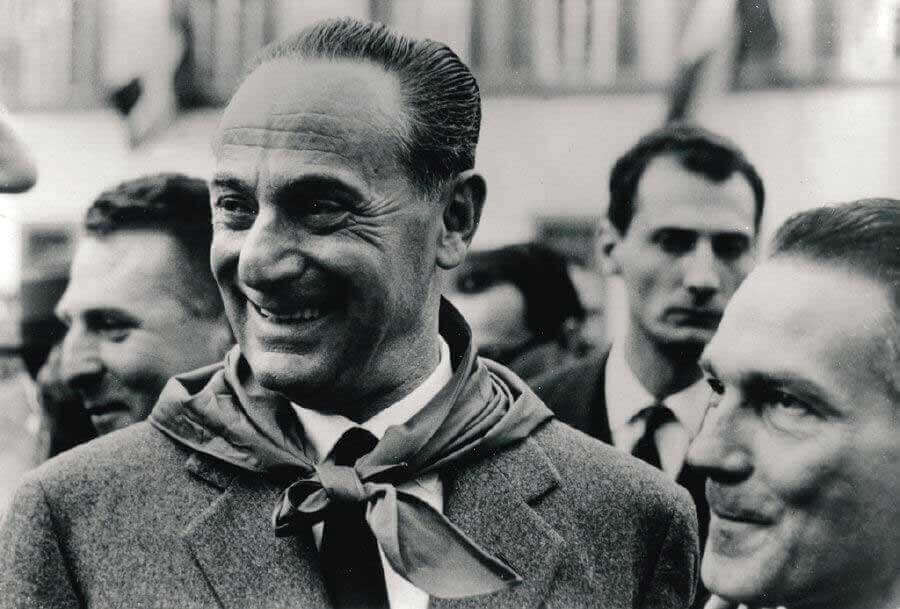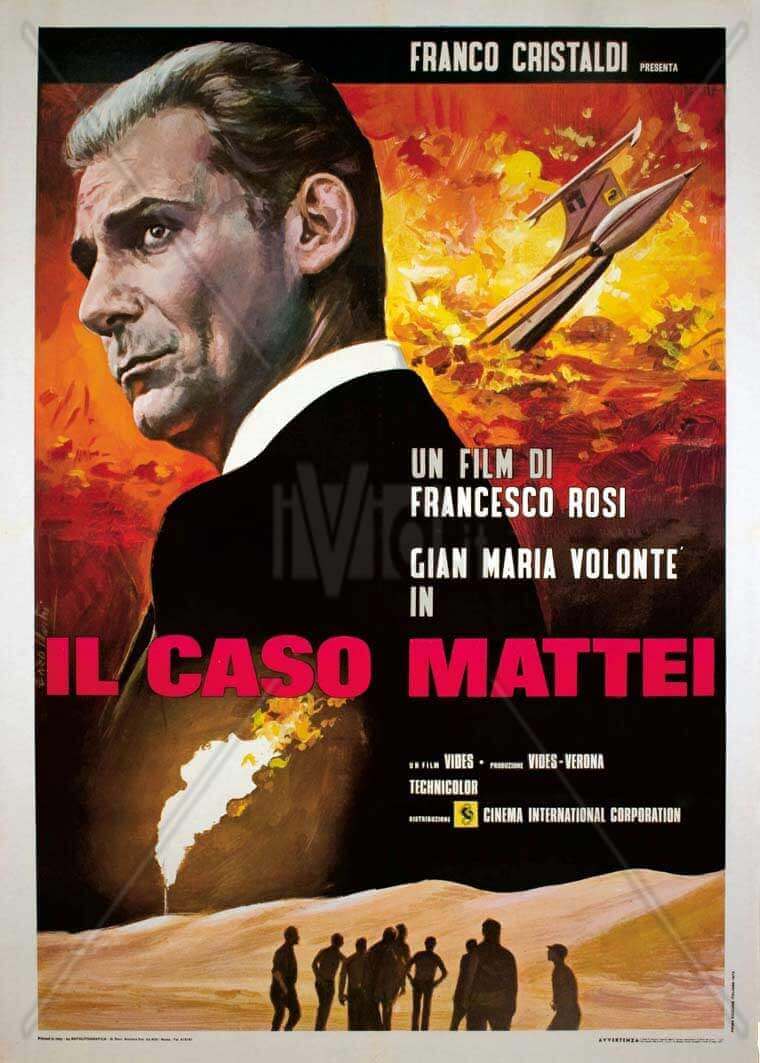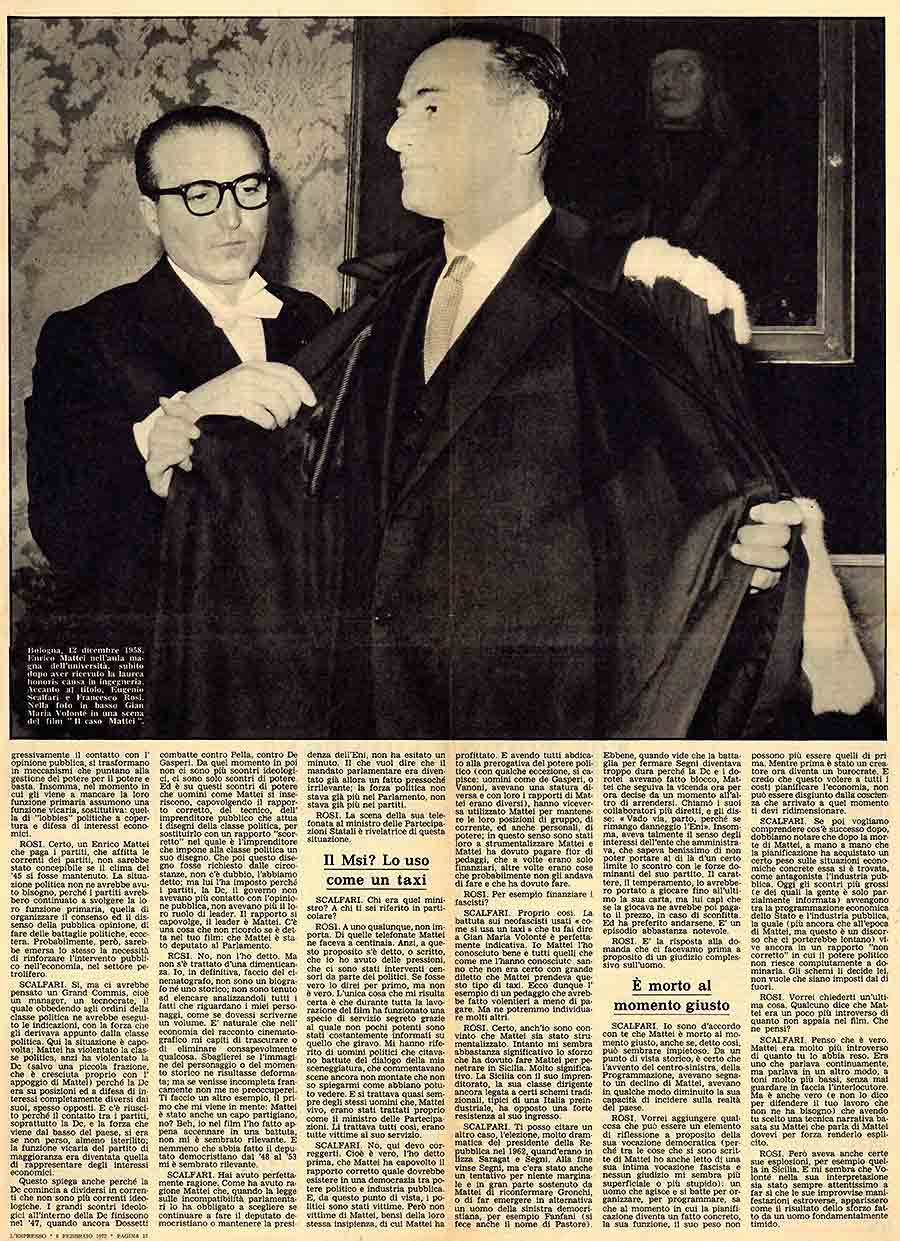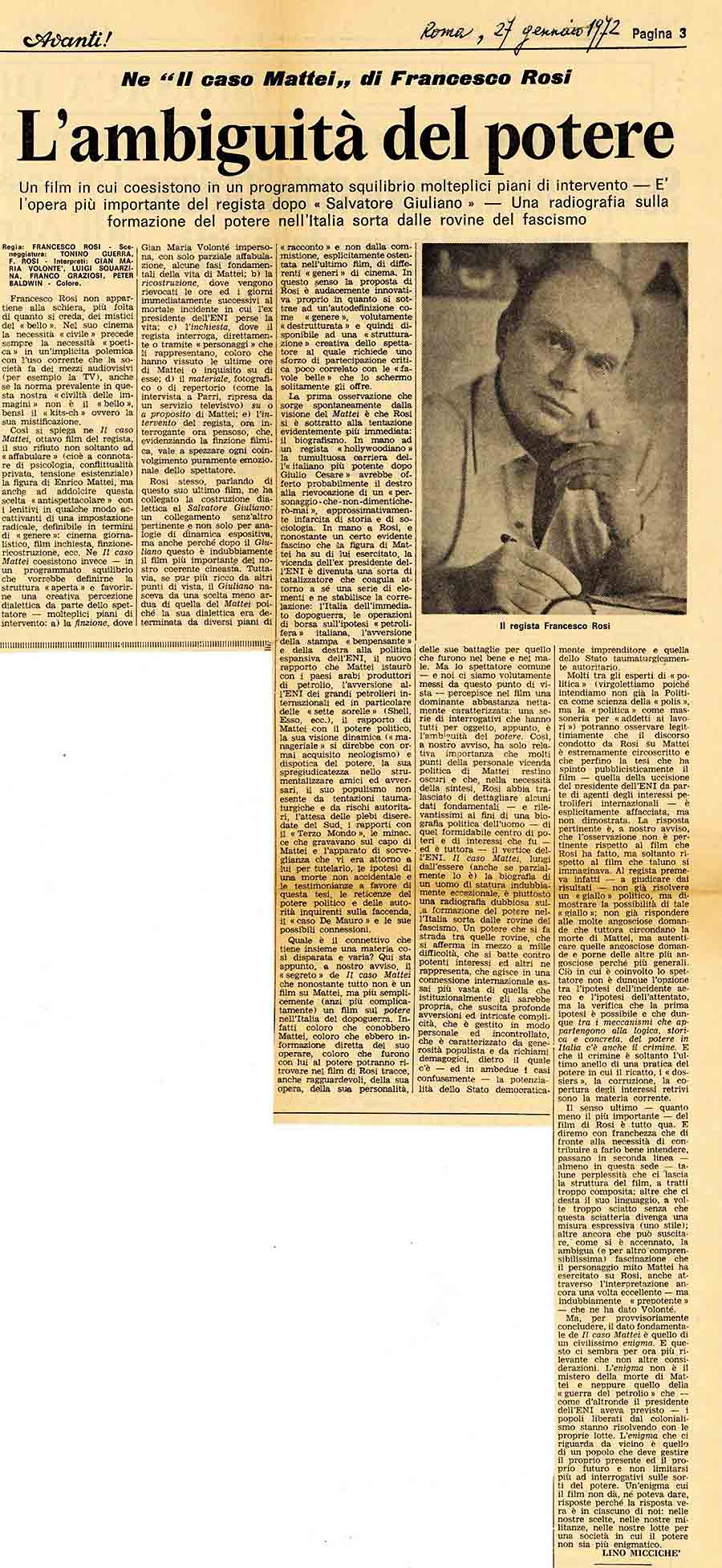”These days there is a lot of talk about Italian energy independence, given that there is a need to disengage from the current enemy of the "masters" with crawling stars. Energy independence, the real one, has been within our reach for decades and has been hampered by the same leeches who today want to impose further sacrifices on us for their economic and political interests.
Daniele Pieraccini
«We Italians have to get rid of this inferiority complex that we were taught, that Italians are good writers, good poets, good singers, good guitar players, good people, but they do not have the skills of the great industrial organization. Remember, friends from other countries: these are things that made us believe and are now teaching you too. This is all false and we are an example of it. You must have faith in yourself, in your possibilities, in your tomorrow; you have to train this tomorrow for yourself».
These days there is a lot of talk about Italian energy independence, given that there is a need to disengage from the current enemy of the “masters” with crawling stars. Energy independence, the real one, has been within our reach for decades and has been hampered by the same leeches who today want to impose further sacrifices on us for their economic and political interests.
Basilicata, for example, literally floats on oil. As early as 1400 the inhabitants saw tongues of fire produced by methane; the first research activities began in the 1900s, until 1959 when, thanks to Enrico Mattei, the first important deposits came to light.
The kitten’s parable
It is to this exceptional and courageous entrepreneur, whose figure Eni continues to exploit to boast an ethic that does not belong to it, Francesco Rosi dedicated a remarkable film in 1972 (never released on DVD), drawing it from the book The Assassination of Enrico Mattei by Fulvio Bellini and Alessandro Previdi (also co-writers of the film) and entrusting the role of manager to Gian Maria Volonté: The Mattei Affair (Il caso Mattei),
an investigative film that should be seen by everyone, screened in schools and recognized as an essential testimony of an event that has profoundly changed the fate of our country.
Starting from the end, or rather from the death of Mattei, which took place in a plane “accident” in 1962, Rosi stages a narrative of the facts carried out with documentary rigor but compelling, original and objective at the same time. Using different narrative registers and never leaning into hasty conclusions, the Neapolitan director gets involved artistically and humanly, creating, with the help of the usual great Volonté, a masterful mosaic of political inquiry.
Dwelling for a moment on Volonté, just think that in the same year he also shot Elio Petri’s The Working Class Goes to Heaven (La classe operaia va in paradiso)…
“
I don’t want to be rich in a poor country
“
In 1945 Enrico Mattei was appointed extraordinary commissioner for the liquidation of the Azienda Generale Italiana Petroli (AGIP). Soon the manager from the Marche contravened the orders, bypassing the Board of Directors recently appointed by AGIP and ordering new drilling in the Lodi area, convinced about the potential of the company he had been called to liquidate.
Mattei deems it necessary to keep in Italian hands the possibility of benefiting from any fruitful developments in the hydrocarbon sector, sparking controversy and disagreements between those who are ready to support it and those who fear above all a reaction from the Allies.
Mattei’s suspicions about the insistence on the liquidation of AGIP are confirmed by the generous offer, of 250 million, from the United States for the acquisition of the company’s facilities, as well as by the sudden increase in foreign technicians in the Lodi area and by the simultaneous release of permits for exploration and research.
Strongly supported by geologists, Mattei convinces the Minister of Industry Giovanni Gronchi and the Minister of the Treasury Marcello Soleri with his reports: he is finally appointed vice president with the task of continuing the mining exploration.
Later Mattei founded Eni, building gas pipelines for the exploitation of methane, obtaining oil concessions in the Middle East and an important trade agreement with the Soviet Union.
His activity breaks the oligopoly of world oil companies (which he himself called “the seven sisters“), placing Italy in a period of national autonomy as well as making it competitive in the world, outside the logic of exploitation of the economic cartel.
The interview (from the movie “The Mattei Affair”)
Over the years, also engaging through media and politics (he founded the newspaper Il Giorno) and opening up to African and Middle Eastern countries with an equal approach far from colonialist logic, Mattei increases its power and aims at a political and economic detachment from orbit of the Allies.
L’intervista (dal film “Il caso Mattei”)
Gagliano’s speech and death
On 27 October 1962 Enrico Mattei was in Gagliano Castelferrato, in the province of Enna. The area is promising in terms of gas and oil fields, but the local politics of the period is in the pay of the Americans and tries to block their way.
Mattei addresses the locals, the misery and hopes of the locals; his are important words, for future memory (if memory has a future). Those who took his place at Eni went in the opposite direction to his: drills roam wildly in Val di Noto and in our seas, but to supply NATO’s arsenals.
A few hours later, Enrico Mattei, together with the pilot and an American journalist who should have interviewed him, dies on board a small private plane that crashes while returning to Milan from Catania.
Enrico Mattei’s is not a story of a distant past, no longer of interest: it is the story of our wretched country, transformed into a land of conquest for other nations, it is the story of a murdered man, taken out of the way and replaced by others to pursue specific objectives. Objectives to date, sixty years after his sacrifice, more and more evident.
Watch the movie.
The arrogance of the powerful
FRANCESCO ROSI TALKS ABOUT HIS FILM
“The Mattei Affair” (Italia 1972) by Francesco Rosi
| Director | Francesco Rosi |
|---|---|
| Script | Tito Di Stefano, Tonino Guerra, Nerio Minuzzo, Francesco Rosi, Fulvio Bellini, Alessandro Previdi |
| Production | VIDESFranco Cristaldi Fernando Ghia |
| Starring | Gian Maria Volonté: Enrico Mattei Luigi Squarzina: the journalist Gianfranco Ombuen: ingeneer Ferrari Edda Ferronao: mrs Mattei Accursio Di Leo: sicilian politician Furio Colombo: Mattei’s assistent Peter Baldwin: Mc Hale Aldo Barberito: Mauro De Mauro |
| Cinematography | Pasqualino De Santis |
| Editing | Ruggero Mastroianni |
| Music | Piero Piccioni |
| Distribution | CIC |
|
Release date
|
January 26th 1972 |
|
Time
|
118 minutes |
TRIVIA:
In the last days of July 1970 Rosi contacted the journalist of the Palermo newspaper L’Ora Mauro De Mauro to reconstruct the last hours of Mattei’s life in Gagliano. De Mauro went to Gagliano where thanks to Mr. Puleo, manager of the local cinema, he managed to get the tape with the last speech made by Mattei; He also had talks with Graziano Verzotto, politician and administrator of the Sicilian Mining Authority (indicated by many as very close to the Giuseppe Di Cristina clan) and with Vito Guarrasi, a very ambiguous character close to both Amintore Fanfani and the US Secret Services. On September 16, 1970, De Mauro was seized from his home in Palermo and was never found again.










